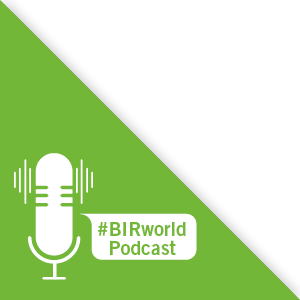As we move into the autumn, the government is beginning to reinstate Coronavirus restrictions in an attempt to stem the long-feared second wave of the pandemic. The government-assisted furlough scheme will conclude at the end of October, to be replaced by a Job Support Scheme which will run for six months and under which an employee must work a minimum of 33% of their hours and cannot be made redundant. Unfortunately, business closures and redundancies are already occurring across all sectors in the UK.
There is some positivity within the metals recycling industry, with merchants reporting it is worth their while being open. While they have not returned to pre-COVID volume levels, business is improving. Traders are reporting that volumes are still lower year on year and it is tough to find momentum. Some redundancies have already been announced within the recycling sector, some employees are still receiving furlough payments and consolidation within the industry is very likely.
The biggest challenges are for those supplying alloys to the struggling aerospace and automotive industries where volumes are massively down. The UK construction industry remains reasonably strong and it is widely believed the government will continue to create infrastructure projects to boost the economy. The food packaging sector is also strong.
Demand from UK scrap consumers has resumed but, with little or no manufacturing having taken place in recent months, stocks of post-production scrap are diminishing. The expectations of suppliers and supplies of non-ferrous have also been boosted recently by the increase in LME prices, but demand has not followed to the same extent and so prices may need to realign.
Some traders are reporting a decline in European demand for copper. Discounts have widened, especially for Millberry, with some European mills not quoting at all. China is understood to be limiting its scrap purchases in an effort to cut imports of “solid waste”, so exports there are proving extremely challenging as traders are uncertain about what is happening. Even for high-grade copper meeting new standards, the lack of customs codes and of clarity regarding the importation process have made some reluctant to ship material to China.
The plethora of UK granulators continues to fight for the same material and so demand for cable is good. Prices and discounts for brass are beginning to decrease, also owing to the introduction of the new Chinese restrictions. In general, however, there is still movement within the brass markets. Demand for lead in the UK is currently stable but may fluctuate if there is a resurgence of COVID-19. A shortage of aluminium is beginning to emerge in the UK, with high grades being most in demand. There is demand for aluminium from Europe and buoyant demand from India now that buying has resumed following the country’s virus-related lockdown.
Reluctantly, the British Metals Recycling Association (BMRA) has taken the difficult decision to cancel its Annual Dinner for 2020. The move reflects both current COVID-19 guidelines in the UK and the difficult economic environment faced by many companies. The BMRA team felt that enforcing social distancing rules would not be conducive to members networking freely - the main purpose of the event.

Susie Burrage
Recycled Products Ltd (GBR), Board Member of the BIR Non-Ferrous Metals Division
Country
 United Kingdom
United Kingdom
